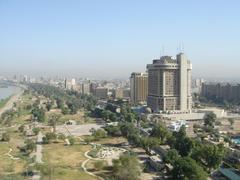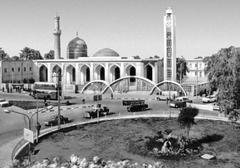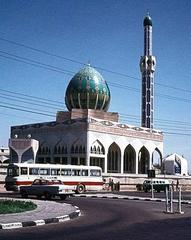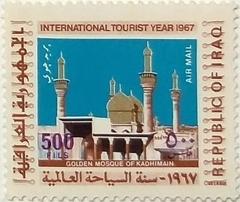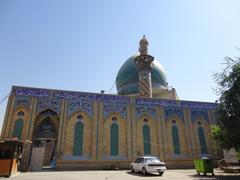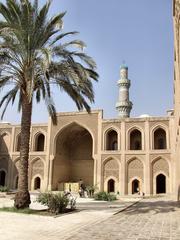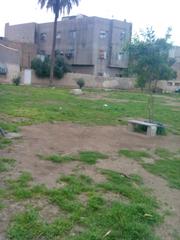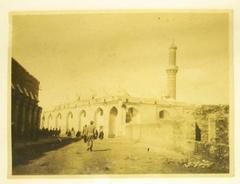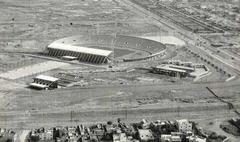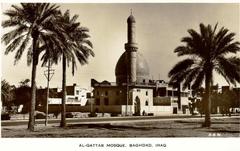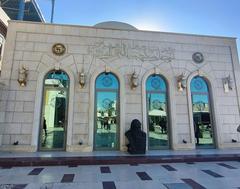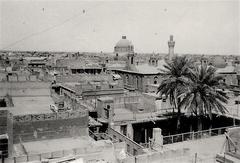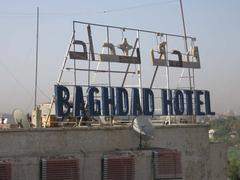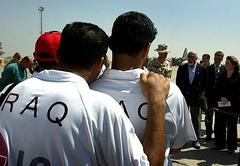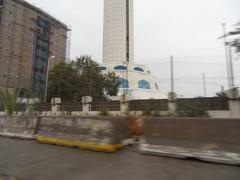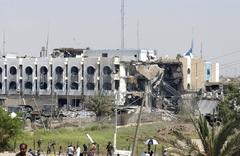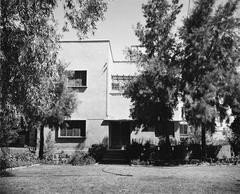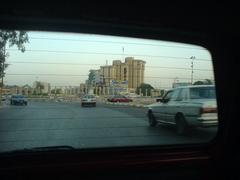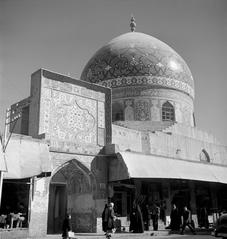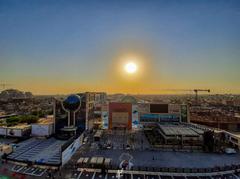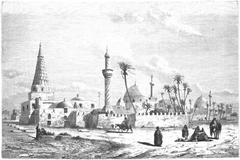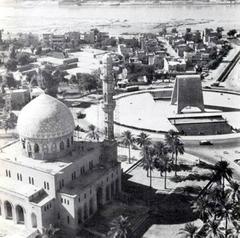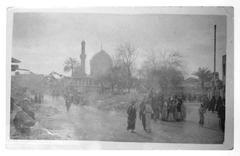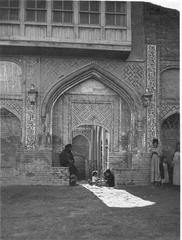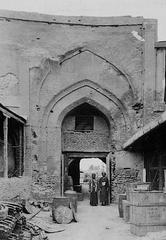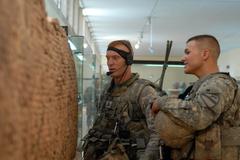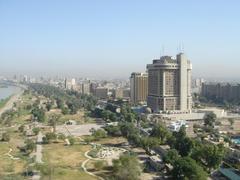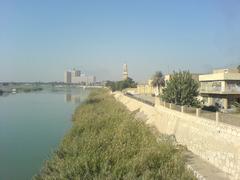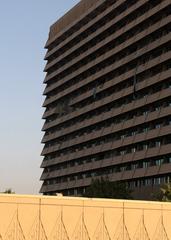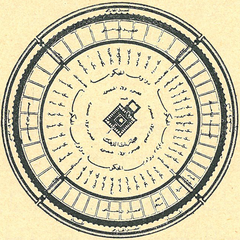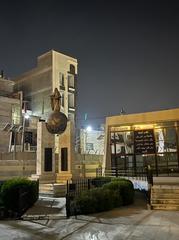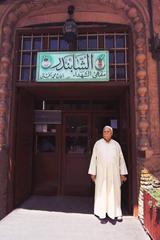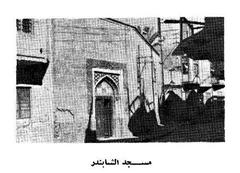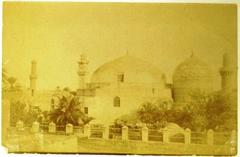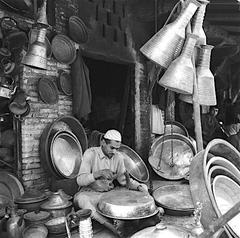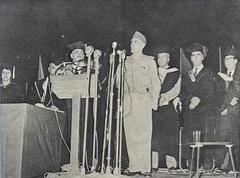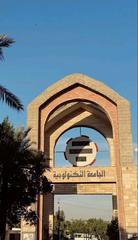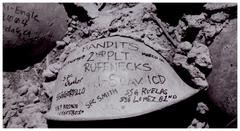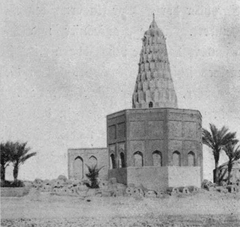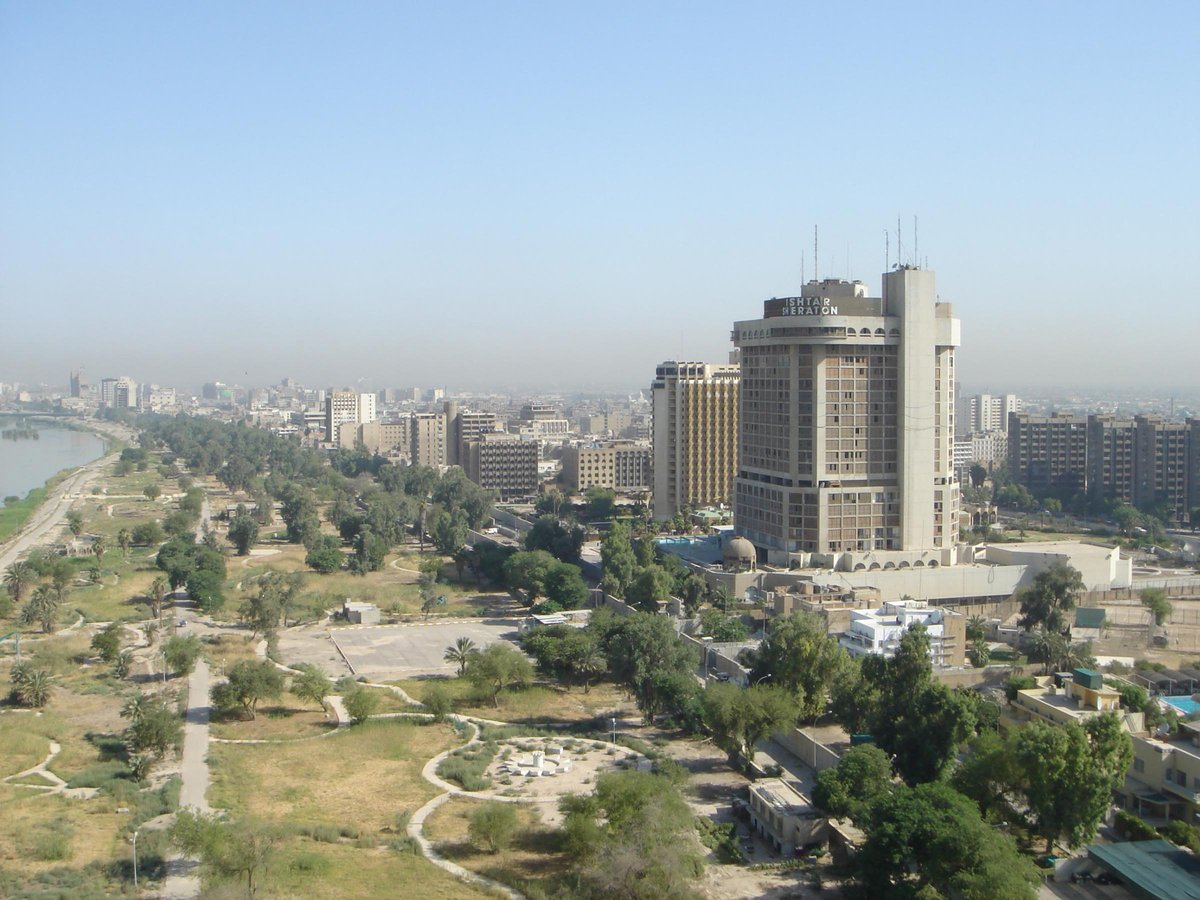
Visiting the Ishtar Sheraton Hotel (Cristal Grand Ishtar) in Baghdad: The Ultimate Guide
Date: 14/06/2025
Introduction: History and Significance
Rising above Abi Nawas Street with sweeping views of the Tigris River, the Ishtar Sheraton Hotel—now the Cristal Grand Ishtar Hotel—remains one of Baghdad’s most prominent architectural and cultural landmarks. Completed in 1982 during a period of ambitious urban development, this 21-story, 99-meter-tall building was envisioned as a bridge between Iraq’s ancient Mesopotamian heritage and the modern architectural era. Designed collaboratively by The Architects Collaborative (TAC) and esteemed Iraqi architect Hisham Munir, the hotel features 322 rooms and an aesthetic that embodies late 20th-century modernism with distinct nods to its namesake, Ishtar, the ancient goddess of love and war.
Throughout its history, the hotel has played an integral role in Baghdad’s social and political life, hosting diplomatic events, international summits, and key cultural gatherings. Despite facing significant challenges—including bombings in 2010 and 2015—the hotel has consistently demonstrated resilience, emerging each time revitalized through renovations and rebranding to uphold its stature as a symbol of Baghdad’s enduring spirit (CTBUH, CNN, Architectural Review).
Today, the Cristal Grand Ishtar stands as both a luxurious destination and a living museum of Baghdad’s architectural ambition and cultural evolution. Whether you are a history enthusiast, architecture lover, or business traveler, the hotel offers an unparalleled experience at the crossroads of heritage and hospitality.
Table of Contents
- Historical Overview
- Visitor Information
- Nearby Attractions
- Photographic Spots
- The Hotel’s Role in Baghdad’s Hospitality Scene
- Frequently Asked Questions (FAQ)
- Conclusion
- References
Historical Overview
Origins and Construction
The Ishtar Sheraton Hotel was inaugurated in 1982, during a time when Iraq sought to present itself as a cosmopolitan hub. The hotel’s design—an international collaboration—integrates modernist lines with motifs referencing Mesopotamian art and architecture. Its concrete structure, expansive glass surfaces, and spacious interiors were groundbreaking for the region. The hotel’s location on Abi Nawas Street was chosen for its proximity to governmental, cultural, and commercial centers, ensuring its role in both urban life and international diplomacy (CTBUH, Architectural Review).
Role in Baghdad’s Social and Political Life
Since opening, the hotel has symbolized luxury and sophistication. It has hosted major diplomatic events, business conferences, and social gatherings, connecting local elites with international visitors. As a Sheraton-branded property, it aligned Baghdad with global hospitality standards and became a preferred venue for cultural exchange.
Impact of Conflict and Security Challenges
The hotel’s central location and prominence made it a focal point during periods of instability. Notable incidents include bombings in 2010 and 2015, which prompted further enhancements in security protocol. Despite these challenges, the hotel remained operational, serving as a testament to Baghdad’s resilience (CNN, Stratfor).
Renovations and Rebranding
In the aftermath of conflict, the property underwent extensive renovations, modernizing guest rooms, public spaces, and security systems. The rebranding to Cristal Grand Ishtar Hotel marked a new era, aiming to restore Baghdad’s reputation as a destination for both business and tourism (CTBUH).
Cultural and Symbolic Significance
The hotel continues to embody Baghdad’s aspirations, serving as a backdrop for both grand events and personal milestones. Its architecture and history link the city’s ancient heritage with its modern ambitions, making it a living symbol of continuity and resilience.
Visitor Information
Visiting Hours and Entry
- Public Areas: Open daily from 8:00 AM to 10:00 PM. Hours may vary on holidays or during special events.
- Entry Fee: There is no general admission fee for entry to public areas such as restaurants and lounges. Guided tours of the hotel’s historical and architectural features can be arranged in advance.
Accommodation and Booking
Rooms and suites can be reserved directly through the hotel’s official website or major travel platforms. Early booking is advised, especially during peak seasons or major events.
Accessibility
The hotel is equipped to accommodate guests with disabilities, offering ramps, elevators, and accessible rooms. Indicate specific accessibility requirements when booking.
Special Events and Guided Tours
The hotel frequently hosts cultural exhibitions, business conferences, and private events. Guided tours focused on the hotel’s history and design can be arranged through the concierge, often available in several languages.
Travel Tips
- Security: Security is robust, with entry checks and ID requirements. Stay updated on travel advisories.
- Transportation: Taxis and private car arrangements are recommended; parking is available on-site.
- Currency: The Iraqi Dinar (IQD) is the local currency; major credit cards are accepted.
- Dress Code: Modest attire is advised throughout Baghdad. The hotel dress code is more relaxed but respectful.
Nearby Attractions
- Al-Mutanabbi Street: A historic book market and cultural hub.
- National Museum of Iraq: Showcasing Mesopotamian antiquities.
- Baghdad Tower: Iconic modern structure with panoramic city views.
- Abu Nawas Park: Riverside promenade popular for local gatherings.
All these attractions are within a short drive or walk from the hotel, making it an ideal base for cultural exploration.
Photographic Spots
- Riverside Terrace: Offers sunset views over the Tigris.
- Lobby and Public Spaces: Architectural details and local art displays.
- Rooftop Viewpoints: Panoramic shots of Baghdad’s skyline.
Photography is generally permitted in public areas, but always seek permission when photographing staff or private functions.
The Hotel’s Role in Baghdad’s Hospitality Scene
Cristal Grand Ishtar is part of a network of leading hotels supporting Baghdad’s hospitality industry, alongside the Palestine and Babylon Hotels. Its strategic location and comprehensive amenities make it a preferred choice for diplomats, business travelers, and tourists (Mapcarta).
Frequently Asked Questions (FAQ)
Q: What are the visiting hours for the Cristal Grand Ishtar Hotel?
A: Public areas are open daily from 8:00 AM to 10:00 PM; check for holiday variations.
Q: Do I need a ticket to enter?
A: No ticket is needed for public areas, but guided tours may require advance booking.
Q: Is the hotel accessible to people with disabilities?
A: Yes, with accessible rooms and facilities.
Q: Are guided tours available?
A: Yes, by prior arrangement with the hotel.
Q: Which historical sites are nearby?
A: Al-Mutanabbi Street, National Museum of Iraq, Baghdad Tower, and Abu Nawas Park.
Conclusion
The Cristal Grand Ishtar Hotel stands as a living testament to Baghdad’s legacy of resilience, innovation, and hospitality. With its storied past, architectural grandeur, and prime location, the hotel offers visitors a unique gateway to the city’s history and vibrant present. Whether you are here for a conference, a cultural tour, or a relaxing stay, the Cristal Grand Ishtar Hotel delivers a distinctive blend of tradition and modern comfort.
For up-to-date information, bookings, and event schedules, always refer to the hotel’s official channels and consult current travel advisories. Enhance your trip by exploring Baghdad’s rich cultural heritage and experiencing the legendary hospitality at the Cristal Grand Ishtar Hotel.
References and Further Reading
- CTBUH: Sheraton Ishtar Hotel
- Architectural Review: A Dream for Baghdad
- CNN: Iraq Violence
- Stratfor: Baghdad Hotels Security Analysis
- Mapcarta: Ishtar Sheraton Location
- River Rock Ishtar Baghdad Hotel Official Website
- Everything Explained: Cristal Grand Ishtar Hotel
- HikersBay: Baghdad Travel Information
- TravelSafe-Abroad: Iraq
